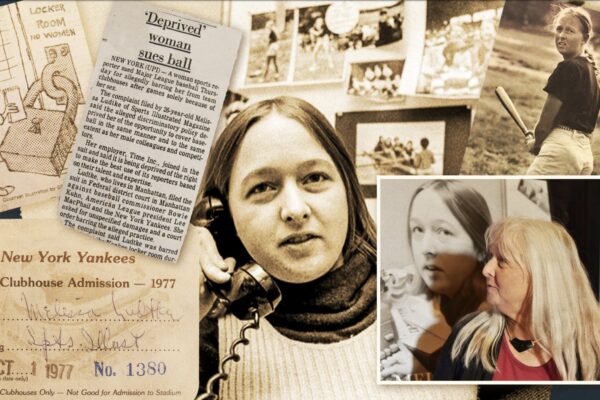By Frank Gogola | @FrankGogola
Sports Capital Journalism Program
INDIANAPOLIS – ESPN basketball analyst Doris Burke played college basketball for two coaches: one female, one male. It didn’t matter what gender her coach was. She was more concerned if the coach had a plan that would help the team win and help her grow as a player and person.
The 2016 Women’s Final Four features four male coaches for the first time. While that prompts questions about gender equality in women’s coaching, the more appropriate question may be why there has never been a female coach in the Men’s Final Four, let alone in men’s basketball.
“As long as I was learning and I was competing, I was happy,” Burke said Saturday at Bankers Life Fieldhouse. “But, however, it is 2016. There is a woman capable of coaching a Division I men’s team. If Becky Hammon can have success under Greg Popovich, and he can see the value fundamental to Becky Hammon as a basketball person, then athletics directors need to see the value in a woman who can coach a college men’s team. No question about it.”
It’s been well documented that the number of men coaching women’s basketball teams has been growing. In the 2014-15 season, for instance, 58.6 percent of Div. I women’s basketball teams were coached by women, down from 66 percent in 2009-10, according to an NCAA Demographics Database.
Connecticut Huskies head coach Geno Auriemma downplayed that there are no women coaches at the Women’s Final Four during a Wednesday teleconference.
“These [other] three coaches have done a phenomenal job of getting their teams to the Final Four,” Auriemma said. “I think the fact that they happen to be men is irrelevant. If we read anything more into that at this time, it takes the focus off what the players and coaches have done, and how they’ve earned the right to play in the Final Four.”
The four coaches – Auriemma, Oregon State’s Scott Rueck, Syracuse’s Quentin Hillsman and Washington’s Mike Neighbors – are only in Indianapolis this weekend because their teams have earned the right to play. It’s that ability to formulate a plan and lead a group of players on a path to success that Burke referenced.
ESPN basketball analyst Kara Lawson isn’t bothered that all four coaches at the Women’s Final Four are men. “Where would women’s basketball be without Geno Auriemma?” she asked. She’s concerned, however, that few women coach men’s basketball teams.
“Until people are, I don’t know if it’s evolved enough or smart enough or whatever it is, to say, ‘We’re going to bring a woman in, and we’re going to give them an opportunity,’ it’s not going to happen, it’s never going to happen,” Lawson said. She spoke passionately about women coaching men’s basketball teams, even if they start as assistant coaches. She also stressed that women should have more opportunities as strength coaches, athletic directors and other jobs in athletic administration.
Lawson continued: “How can you discount half the population and think that you’re going to have a competitive business, a competitive program, a competitive team? How can you do that? It’s the most backward logical thinking in terms of building a great team. Take advantage of everybody out there, everybody’s a candidate, and then pick your best people.”
Those opportunities have been visible in the NBA, with Hammon and Nancy Lieberman as assistant coaches at the San Antonio Spurs and the Sacramento Kings, respectively.
College basketball is a different game than the NBA, but women should still have opportunities in this arena.
“To think you’re rationalizing it in a way by saying nobody’s applied or they’re not qualified or they don’t know the men’s game or it’ll hurt recruiting or whatever excuse you want to make up, it’s just an excuse is what it,” Lawson said. “I get passionate about it because it’s frustrating. Anybody that wants to call me for some names, I got some who’d be great assistant men’s basketball coaches.”
A men’s basketball head coach anonymously said he doesn’t believe there will be a female Div. I men’s basketball head coach in the next 25 years, according to an Aug. 6, 2014, CBS Sports article. “A big part of being a college coach is molding boys into successful men,” the coach was quoted as saying. “Obviously a woman can’t do that. I just don’t see a place for it.”
As ESPN play-by-play commentator Beth Mowins pointed out: “Women have been raising sons and turning them into men for an awful long time. So, the guys that are on your team, that’s a family, too. I think, actually, women are quite capable in that department.”
Male coaches have been molding girls into women for years, which is how Rueck sees his job. In trying to sidestep the gender issue in coaching, Rueck made Burke, Lawson and Mowins’ point for them.
“I see my job is helping women reach their potential, and I’ve devoted my life to that,” Rueck said, according to a March 31 ESPN article. “I don’t see it as an issue. The most significant, impactful people in my life have been female. I think there is a place for guys as mentors in the women’s game. We can all learn from anyone.”


